
Can You Have Multiple Properties With A Single VA Loan?
Can You Have Multiple Properties With A Single VA Loan? You’re trying to buy a property and it includes more than one parcel or lot
Carlos Scarpero- Mortgage Broker
Buying your first home using a VA loan is an exciting milestone, especially if you're a veteran or an active duty service member. However, this process can also be filled with pitfalls that might cost you time, money, and even the chance to secure your dream home. Drawing from years of experience helping VA homebuyers, I want to share the six most common rookie mistakes that I see first-time VA buyers make — and more importantly, how you can avoid them. If you’re preparing to buy your first home with a VA loan, this guide will help you dodge costly errors, reduce stress, and make your home buying journey smoother.
One of the biggest mistakes I see is buyers waiting too long to contact their loan officer. I get it — nobody wants to immediately start digging up pay stubs or have financial conversations when they’re just starting to think about buying a home. But here’s the truth: there’s really no such thing as calling your loan officer too early.
Engaging with a VA loan specialist early on — ideally as soon as you think you might buy a house within the next year — can save you thousands of dollars and a ton of headaches down the road. Why? Because loan officers can provide valuable tips, strategies, and sometimes identify credit issues that need repair. These fixes take time, so waiting until the last minute can delay your closing or even derail your chances of securing your home.
Think of your loan officer as your guide through the process. The sooner you start the conversation, the better prepared you’ll be to navigate the VA loan requirements and avoid surprises.
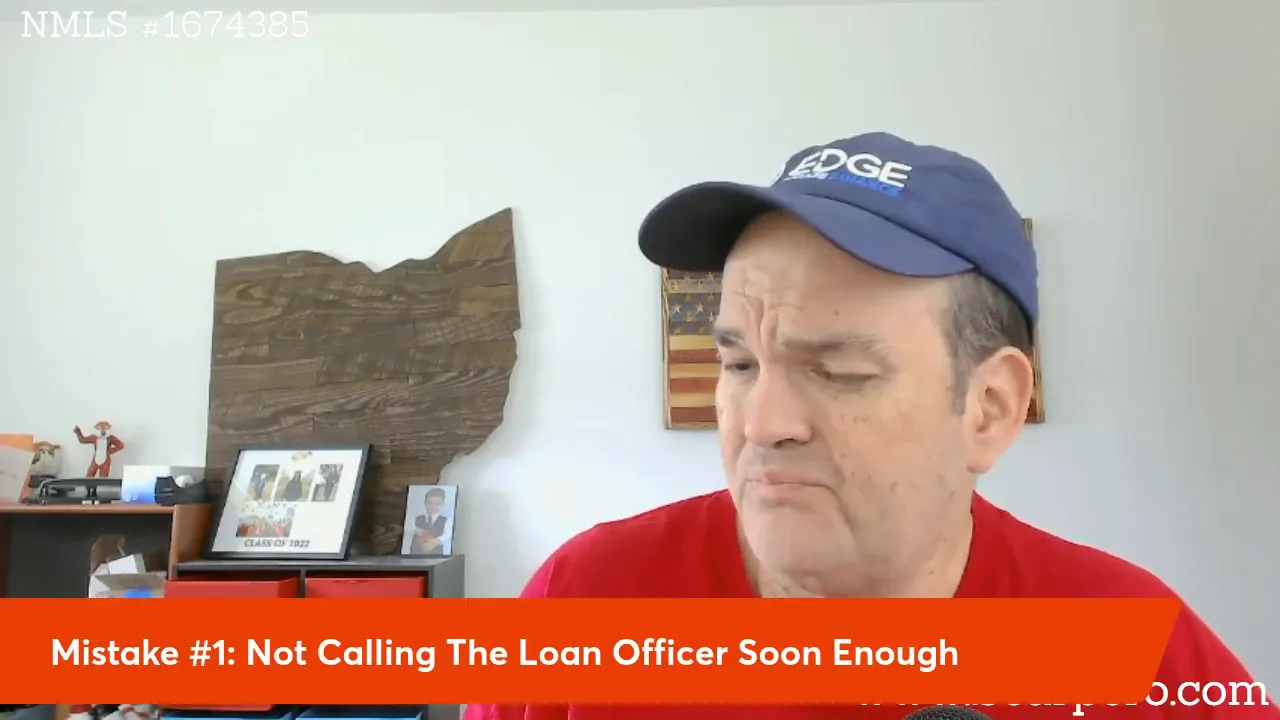
VA loans are unique — they’re not complicated, but they do have differences compared to conventional loans. Unfortunately, many loan officers only handle one or two VA loans per year, so they might not be familiar with the nuances that can help your transaction go smoothly.
You want to work with a loan officer who specializes in VA loans, someone like me, who handles VA loans for 90% of clients. These specialists understand the ins and outs of the VA loan process and can help avoid delays or unexpected issues.
Similarly, your realtor should be experienced with VA loans and knowledgeable about veterans’ needs. Not every realtor is equally equipped. Look for those with certifications such as the Military Relocation Professional (MRP) designation, which indicates specialized training in working with military clients.
If you’re unsure, ask your loan officer for recommendations on trusted realtors who are familiar with VA loans. Another great option is to talk to friends or family who have successfully purchased a home with a VA loan — their realtor might be a good fit.
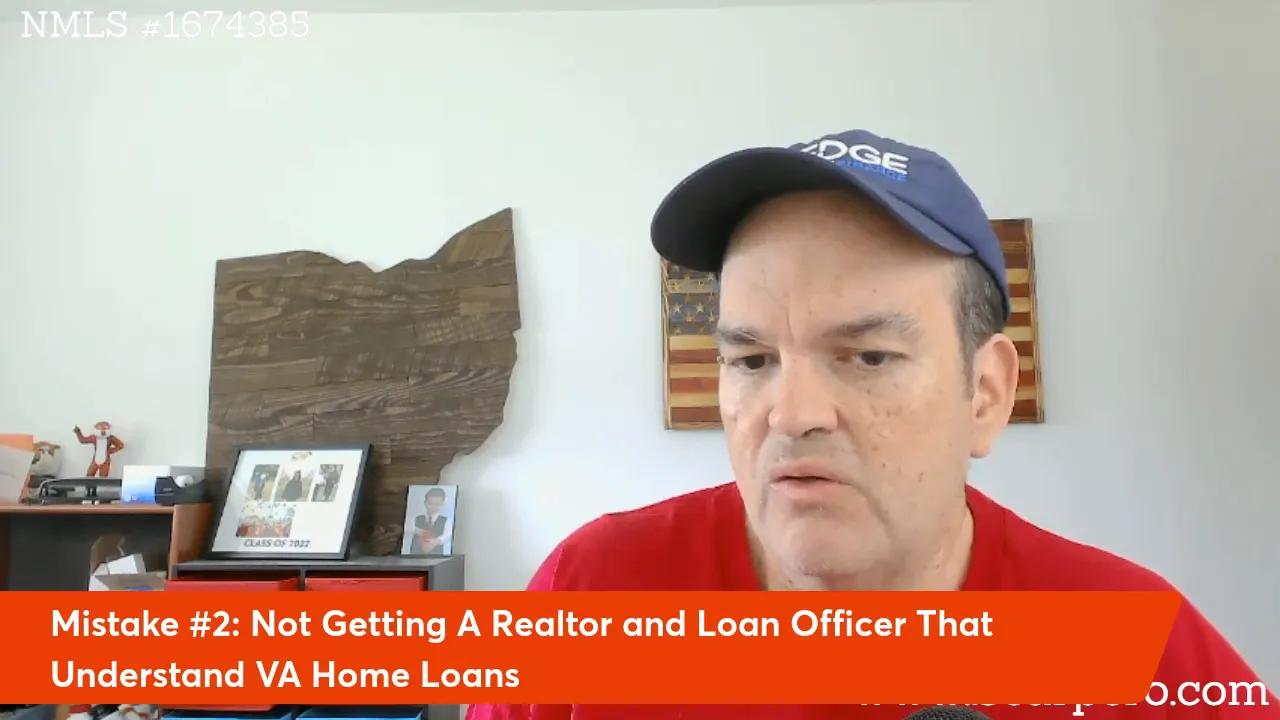
One mistake that can cost you big is skipping the home inspection. It’s important to understand that a home inspection is different from the VA appraisal. The appraisal mainly ensures the home meets VA minimum property requirements and determines the home's value, but it won't tell you about potential issues that could lead to expensive repairs down the road.
A home inspection is an independent evaluation that looks closely at the condition of the property. It can uncover hidden issues like structural problems, faulty electrical wiring, plumbing issues, or even environmental hazards like radon.
For example, I recently worked with a buyer who discovered radon gas during their home inspection. Radon is a serious health risk if left unaddressed, and catching it before buying allowed them to negotiate remediation or walk away if necessary.
While home inspections cost a few hundred dollars, they are a small price to pay for peace of mind and protection against costly surprises. Don’t skip this crucial step.
One of the biggest misconceptions about VA loans is that they are completely “zero down” with no additional costs. While it’s true that VA loans don’t require a down payment, there are still closing costs involved. These include fees for the title, appraisal, prepaid property taxes, and other standard expenses.
Many buyers don’t realize that closing costs can’t be rolled into the loan amount with a VA loan. This means you’ll need to have funds ready to cover these fees at closing.
There are ways to manage closing costs, such as negotiating seller concessions, where the seller agrees to pay some or all of the closing costs. However, this depends heavily on the market conditions and your realtor’s negotiation skills. In a buyer’s market, sellers might be more willing to offer concessions, but in a hot seller’s market, you shouldn’t rely solely on this strategy.
Another option is to receive a gift from a relative to cover closing costs, which VA guidelines allow. This can be a helpful way to alleviate upfront expenses.
The key is to have a clear game plan before you start house hunting. Talk to your loan officer about estimated closing costs and discuss with your realtor how to approach seller concessions. Being prepared will prevent surprises and delays.
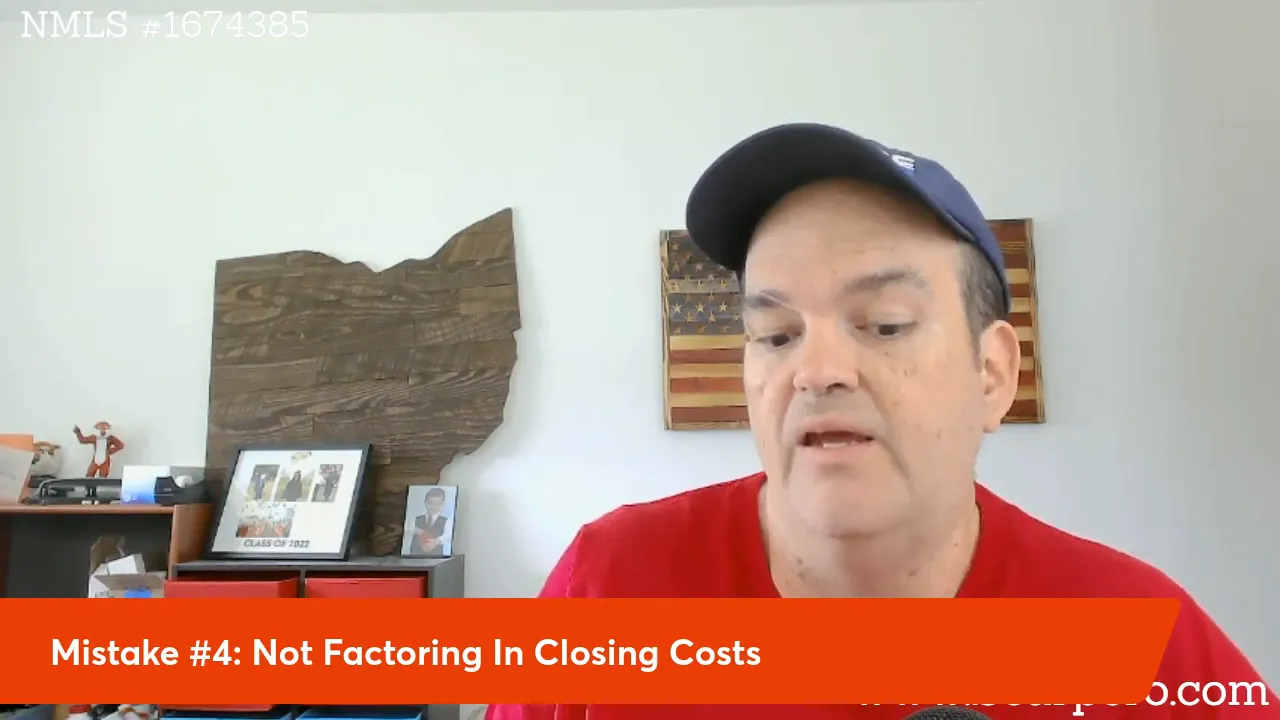
Many first-time buyers simply guess what they can afford or base their decision on the listing price alone. Looking at Zillow or other listing sites and picking a house based on price without understanding the actual monthly payment can be a costly mistake.
Take the 30 second mortgage quiz to see if you qualify |
| Start The Quiz |
It’s essential to establish a realistic budget by factoring in not only the mortgage principal and interest but also property taxes, homeowners insurance, and any HOA fees. These combined payments will determine what you can comfortably afford each month.
Talking to a loan officer early in the process helps you understand what loan amounts you might qualify for and what monthly payments fit your budget. Being pre-approved with a clear picture of your finances prevents disappointment and helps you focus your home search on properties within your means.
Remember, affordability isn’t just about qualification — it’s about what fits your budget without stretching your finances too thin.
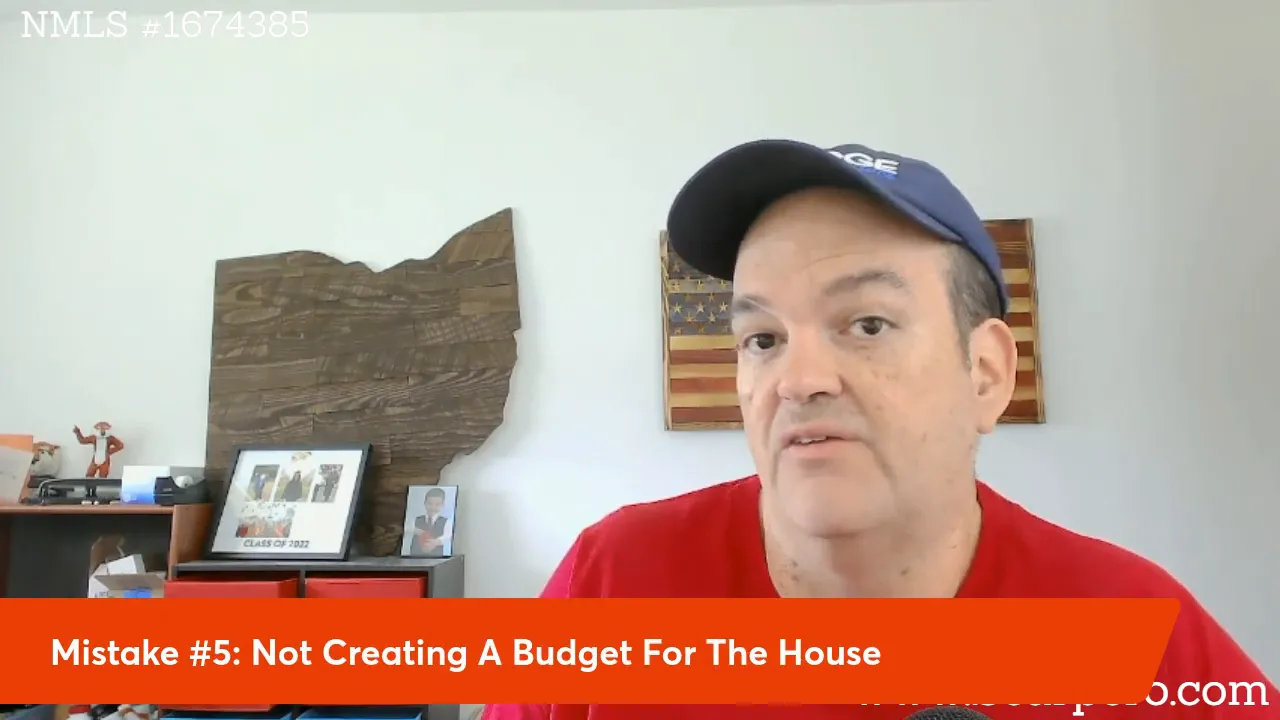
In competitive markets, it’s tempting to rush into a decision because you’re afraid of losing out to other buyers. However, buying a home is a major commitment, and rushing can lead to regret.
You might be spending 10, 15, or even 20 years in your new home, so it’s important to take your time and carefully evaluate whether the house meets your current needs and future plans. Consider factors like:
Taking the time to weigh your wants versus needs will help you make a confident, informed decision.
Also, be mindful of earnest money deposits. Once you go under contract, your earnest money is typically non-refundable. Changing your mind after that point can mean losing your deposit and causing unnecessary stress.
Patience and due diligence pay off in the long run.
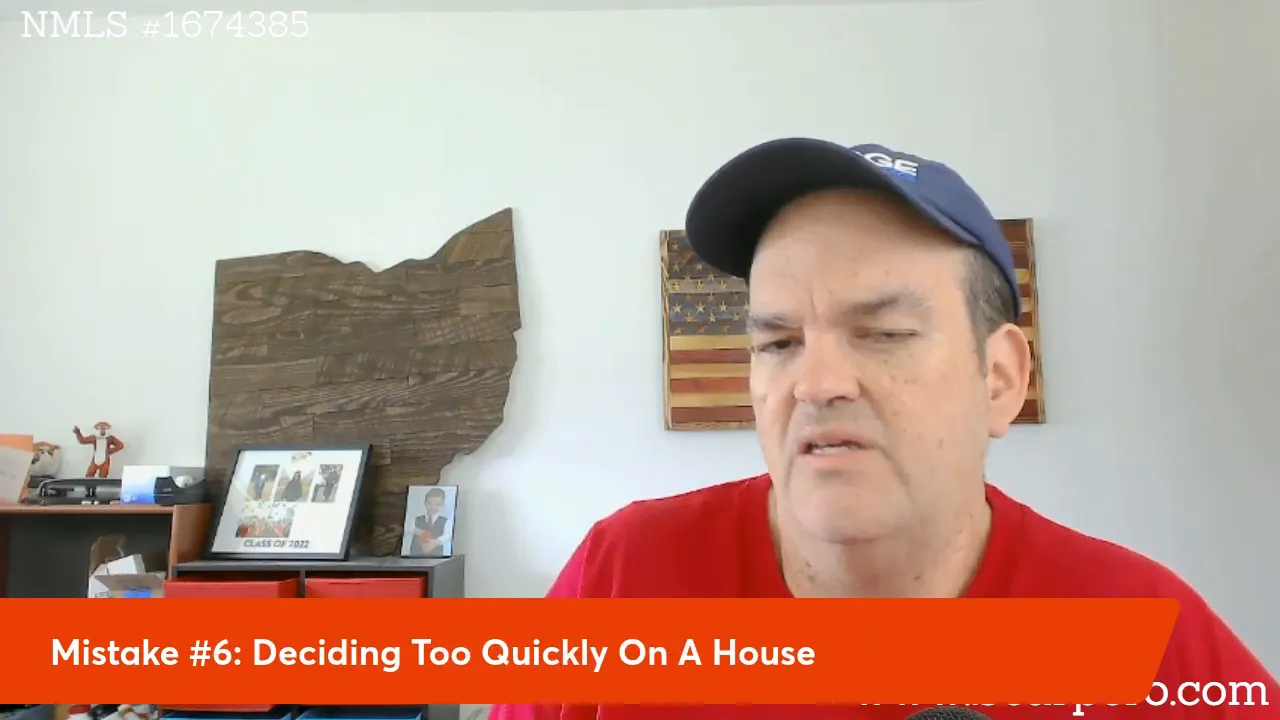
Buying your first home using a VA loan is a fantastic benefit you’ve earned, but it’s important to approach the process with the right knowledge and team. Avoiding these six common mistakes can save you thousands of dollars, prevent delays, and help you secure a home you’ll love for years to come.
By following these guidelines, you’ll be well on your way to a successful VA home loan experience. If you have questions or want personalized guidance, don’t hesitate to reach out to a trusted VA loan officer who can walk with you through every step.
Happy house hunting!
A: As soon as you think you might buy a home within the next year. Early communication allows your loan officer to help you prepare, address credit issues, and guide you through the process smoothly.
A: The VA appraisal determines the home's value and ensures it meets VA minimum property standards. A home inspection is a thorough examination of the home’s condition, identifying potential repairs and safety issues that the appraisal won’t cover.
A: No. Closing costs must be paid upfront, but you can negotiate seller concessions or use gift funds from relatives to cover these expenses.
A: Look for realtors with the Military Relocation Professional (MRP) certification or ask your loan officer for recommendations. Friends or family who have used VA loans can also be a great resource.
A: You may lose your earnest money deposit, which is generally non-refundable once the contract is signed. That’s why it’s important to be sure before committing.

Can You Have Multiple Properties With A Single VA Loan? You’re trying to buy a property and it includes more than one parcel or lot
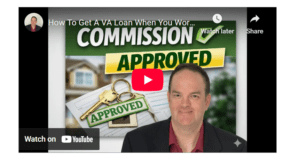
How To Get A VA Loan When You Work On Commission If you earn commission instead of a steady salary, qualifying for a VA loan

Can You Refi a VA Loan With Bad Credit? If you have a VA loan and a low credit score, you might assume refinancing is